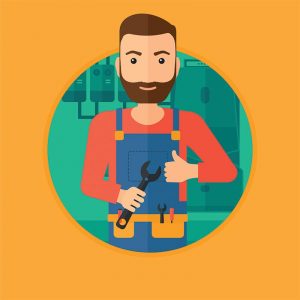The large variety of boiler types available on the market today makes it difficult to decide which to choose. The appliance is a vital piece of equipment and a long-term investment so it is important to make the right decision from the start as a result.
As of 2005, condensing technology must feature on all new boilers installed in the UK. This uses heat recovery from fuel burning to generate 90% of its heat. Consequently, there are way more efficient.
There are three different boiler types from which you can choose:
- Combi
- System
- Conventional
The Combi Boiler
The combi (combination) is the most popular type in the UK. They are available as gas, oil or electric and each one is an energy-efficient water heater and central heating boiler. There is no need for a hot water cylinder or a water tank as heat is directly from the mains.
They are compact, making them a perfect option for smaller homes with limited loft space. Installation requires less pipework, usually resulting in cheaper costs.
The System Boiler
A system boiler is available as gas or oil. When compared to combi, they are more economical and are also suited to solar water heating systems.
A hot water cylinder is necessary for the running of a system boiler. Fortunately, the boiler contains most of the important heating and hot water technology. A water tank is not needed though. This means they are a good choice for homes with limited loft space but which have a space for a hot water cylinder.
System boilers are good because they allow multiple taps to be used simultaneously.
The Conventional Boiler
Traditional heating and hot water systems will have an impact on what type of boiler to choose. Combi and system boilers are not compatible because they have higher water pressures. Conventional is, therefore, the best type.
A conventional boiler needs a cold water tank, a hot water cylinder and a central heating water tank. Properties need to have enough space for the four different components.
However, these boilers are highly economical, especially when combined with a solar water heating system. Consequently, this can make them extremely environmentally-friendly and cheap to run.
If you need help choosing a boiler type for your home or business, contact us for free and helpful advice on 0800 311 8990.


 Carbon monoxide poisoning poses a serious risk in every household and workplace. In England and Wales, around 50 people die and 200 people are hospitalised every year because of exposure to it. Therefore, it has earned the name Silent Killer.
Carbon monoxide poisoning poses a serious risk in every household and workplace. In England and Wales, around 50 people die and 200 people are hospitalised every year because of exposure to it. Therefore, it has earned the name Silent Killer.

